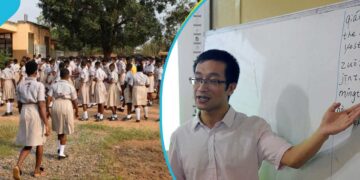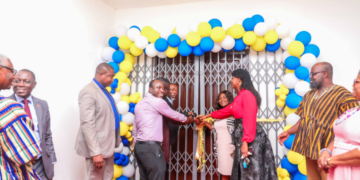Gender and age discrimination has been at the heart of the violation of girls’ rights with the world needing a profound social transformation in support of girls’ rights.
In the last 15 years, Ghana has made remarkable progress towards the empowerment of girls.
On December 19, 2011, the United Nations General Assembly adopted resolution 66/170 to declare October 11 as the international day of the girl child, to recognize girls’ rights and the unique challenges they face around the world.
The day also focuses attention on the need to address the challenges girls face and to promote empowerment and fulfillment of their human rights.
The observation supports more opportunities for girls and increases awareness of gender inequality faced by girls worldwide. This inequality includes areas such as access to education, nutrition, legal rights, medical care, and protection from discrimination, violence against women, and forced marriages.
As Ghana joined the rest of the world to commemorate the celebration on October 11, the Center for Gender Research, Advocacy, and Documentation at the University of Cape Coast collaborated with the University of Cape Coast Basic school to educate and reinforce the fundamental rights of the girl child in relation to quality education and protection from all forms of discrimination.
Read also: Ghanaians advised not to confuse ordinary allergy with blood group allergy
The Director for CEGRAD Dr. Georgina Yaa Oduro explaining the importance of commemorating such a day explained that educating the girl child on topics that address their unanswered questions will bring long-term benefit to them and generations beyond.
“Some of the children had questions on child marriage, others asked why some girls may be disadvantaged when it comes to educational opportunities; for us, these are things they observe in the society. So, we have to educate them on all these, that they are social constructions but as they go through education, they should change and impact the next generation so that gradually we can wipe off these issues” she emphasized.
She described the selection of this year’s theme, MY VOICE OUR EQUAL FUTURE: DIGITAL GENERATION, OUR GENERATION which focuses on the rights, safety, and education of the girls around the world as appropriate and timely especially at a time that the world is embracing technology.
“It is important to bridge the gap,” she said.
The coordinator for Advocacy and Research at the Center Dr. Theresah Addai-Mununkum also called on parents and teachers to allow the children to explore all possibilities available to them, irrespective of their gender.
To her, nothing should stop an individual in the pursuit of their interests as they explore possibilities available to them.
Source: Vera Siripi/ATLFMNEWS




























